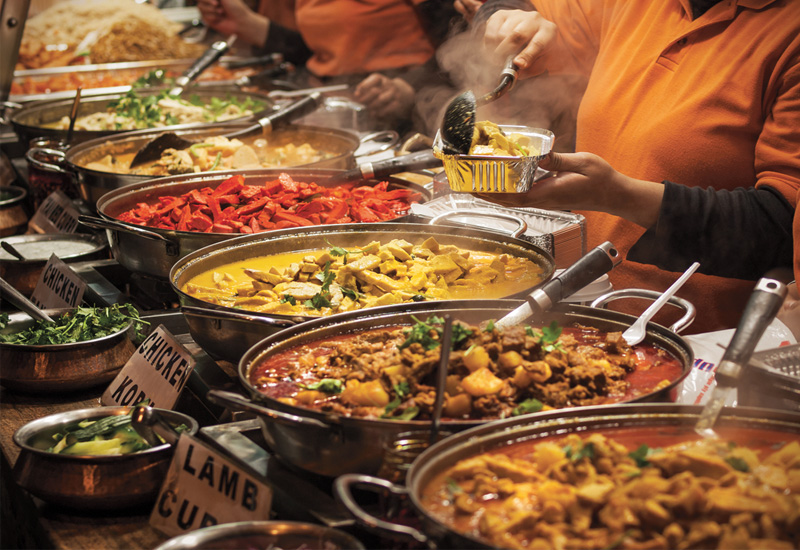 Smaller serving dishes in buffets means less wastage, believes Chong Yoong Kiong, executive chef at Bushra by Bushido, in Bahrain.
Smaller serving dishes in buffets means less wastage, believes Chong Yoong Kiong, executive chef at Bushra by Bushido, in Bahrain.
He said mismanagement or mishandling food leads to waste, which is caused by over production and poor estimation. “In addition, many stand-alone restaurants and hotels make the mistake of ordering more raw materials than they can properly store due to limited storage space, which results in spoilage,” explained Hachem.
He reiterated that excess food from the hotel’s iftar events are given to charity. “Over the years, we have partnered with an accredited charity organisation to distribute food to the less fortunate.
The process involves strict guidelines to ensure the food is at its freshest and best quality. Any back-up food left is taken by the employees of the organisation who have been trained in food handling. Proper storage space and other equipment are provided to portion food in individual containers that are then transported under temperature controlled conditions to the destination,” he said.

| Advertisement |
Food wastage in Ramadan is not endemic to the UAE. Chong Yoong Kiong, executive chef at Bushra, the Ramadan experience by Bushido in Bahrain, and operations manager Vincent Barthelemy said in an interview with Caterer Middle East that food waste increases during the holy month.
Barthelemy said iftar food quantities are decided based on the number of reservations, plus an additional 50% allowance for walk-ins.
“Last year was the first time we ran Bushra during Ramadan, so this was effectively a trial period in itself. We used the information from Bushra last year to plan the effective launch and operation of our weekly Friday brunches. Now for Bushra 2013, we have a whole year’s worth of data that we did not have last year. This has made it much easier to forecast and reduce wastage.”
Each week the team monitors, assesses and makes adjustments to ensure any wastage is reduced. Bushra also uses live stations to control food production. Kiong explained: “The benefit of the live cooking stations is that it ensures food is only cooked on demand, whilst also providing an interactive experience that is popular with our guests.”
He also said that serving dishes in the buffet are not too big. While this increases the number of times each dish needs replacing, it reduces wastage and ensures the food is served as fresh as possible.
Kiong said that following HACCP standards, the team cannot reuse food in the buffet but excessive refrigerated food is often reinvented into new dishes. Training is an important factor, according to Barthelemy.
He said: “We also like to train the service staff with what is left over as it is important for them to have a good understanding of what dishes they are serving. We believe that if our staff are able to provide better explanations about the dishes they are serving, offering good personal recommendations to our guests, then we can encourage guests to each try a larger range of the dishes available and subsequently reduce food wastage.”








 Search our database of more than 2,700 industry companies
Search our database of more than 2,700 industry companies









